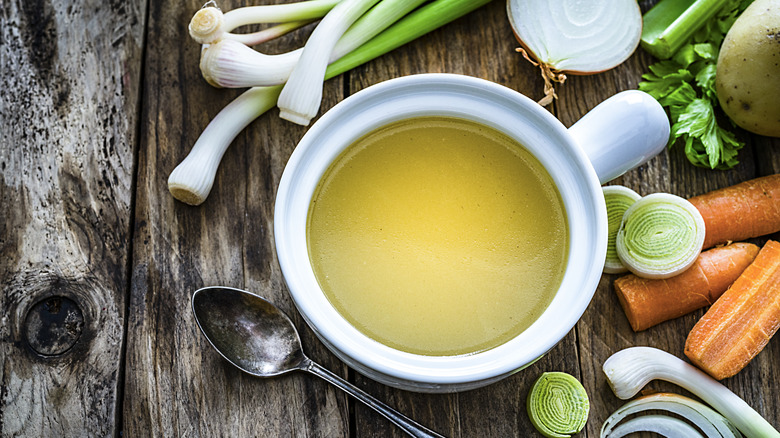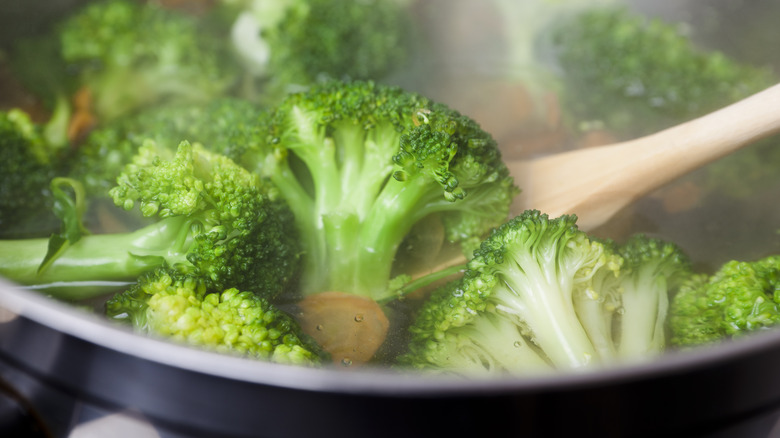The Last Thing To Do Before Throwing Out Leftover Vegetable Cooking Water
When working with fresh veggies, you can simmer 'em, poach 'em, or full-on boil 'em to get them tender enough for the dinner table, but did you know that most vegetables lose a good amount of their nutrients when cooked in water? That's right, vegetables often contain a generous amount of vitamin C, and that is the nutrient that is so often lost during the boiling process. Ingredients like broccoli, spinach, and lettuce are especially prone to this, releasing up to 50 percent. But where does that 50 percent of vitamin C go? It actually remains in the cooking liquid, which is part of the reason you should never throw it out. That leftover veggie water also contains some flavor!
Sometimes called "liquid gold" by chefs, the liquid you boil foods in is ordinarily thrown out, but it contains all types of flavor and can be used to enhance the taste of your dishes. Think about it: your leftover pasta cooking water contains starches from your noodles that help thicken sauces, your water that you boiled chicken in contains delicious umami chicken flavor that is a brilliant addition when cooking rice, and the liquid you cooked your veggies in contains an array of nutrients and flavors that were secreted during boiling, perfect for your next soup base. It's all accidental magic.
How to utilize your cooking water
The next time you're boiling up a batch of fresh veggies and you're preparing to transfer them to a colander, reach for your tongs or a spider strainer instead. Dumping that precious water through a colander and down the drain is basically throwing away essential nutrients. Instead, transfer your veggies to an ice bath or serving plate, cool your cooking liquid, and strain it through a sieve into another large container so that any seeds or veggie bits are removed. From there, you can store it in the refrigerator or even freeze it until you're ready to use it.
This liquid is a wonderful base for your next soup, sauce, or stock. All you have to do is swap it in for any water or broth called for in your recipe. And if your next sauce needs a bit of thinning out, this cooking liquid will do just the trick. While boiling your veggies does release a lot of their nutrients compared to roasting and grilling methods, don't worry, you can get some of that back if you hold on to it as an extra ingredient and use it to flavor and boost upcoming meals.

